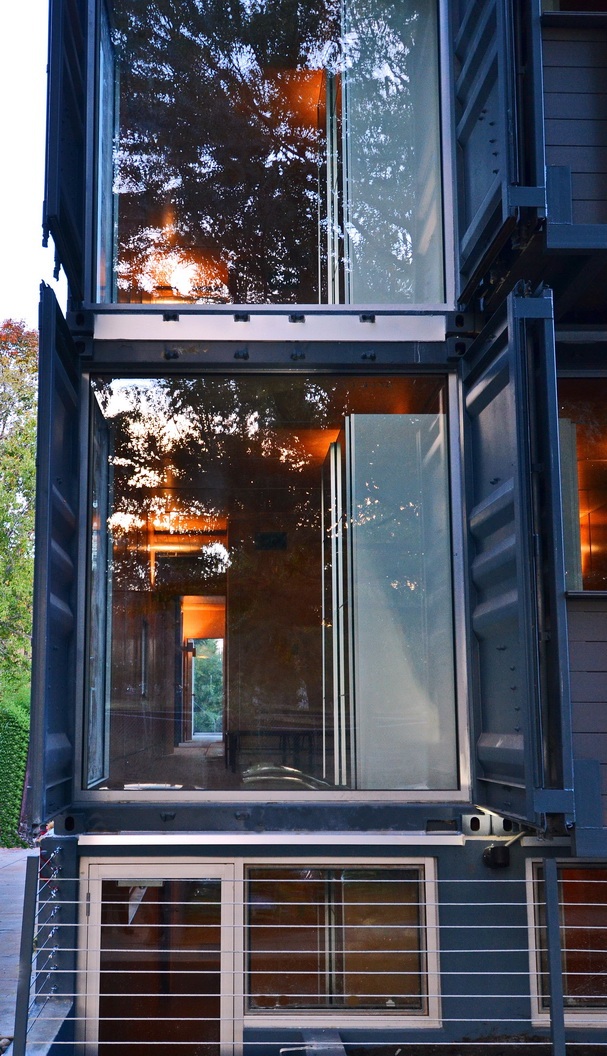SeaUA is the first sea container housing project in the nation’s capital, Washington DC. The 18 sea containers were marketed to millennials abutting the Catholic University of America (CUA) at the Brookland Metro stop. A second similar project in the vicinity is also envisioned. The housing units are all sustainable engineered wood interiors using high performance energy conservation designs.
Repurposing sea containers has been proliferating globally for years, however today with over 700,000 fallow sea containers alone in the US, their reuse is not only an ecological necessity, but one that will be putting the US construction industry back to work locally. As important is the private entrepreneurship of recent local CUA graduates Matt Grace & Sean Joiner, to finance, design, and envision these endeavors without taxing government. Kelly Davies, project architect at TPA, also a CUA graduate has guided the project from concept to completion and has generated the DC government's terrific support for the sea container initiative.
Breaking more ground on the groundswell of a new modernism for DC was the design mission. The distinctive modern design movement from Ikea, to million dollar condos, to single homes and commercial buildings is now finding its way to a profoundly less costly market with the SeaUA project.
SeaUA uses additional modernist traits besides the water tight steel sea containers. The transparent polygal stair coverings as well as eco engineered walkways and balconies are fully sustainable. Every effort has been made to evolve these units into ultra-low energy consumption. The design directive is to demonstrate a highly efficient, humanely warm, and modern lower cost housing option. Besides custom luxury homes, future plans range from a floating Sea Container apartment complex for millennials on the Potomac to a floating Sea Container village for the homeless near Georgetown. Needless to say the small apartment and condo market will continue to evolve with sea containers.



